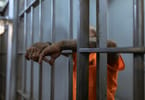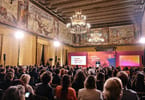DUBAI, United Arab Emirates – The UAE tourism market is expected to grow further over the next three to five years, driven by strong air connectivity and the diversification of its offering, according to a report by real estate consultancy JLL.
“There has been an increase in hotel development activity over the last two years due to the encouraging signs in the tourism sector and wider economy. With increased investor confidence, older projects have been revived and new projects announced with international operators constantly trying to increase their hotel footprint in the UAE,” said Chiheb Ben-Mahmoud, JLL’s executive vice president – head of hotels and hospitality group for the Middle East and Africa.
The hosting of the World Expo 2020, a six-month event that is expected to attract 25 million visitors, in Dubai will benefit the emirate’s hospitality sector. The benefits are likely to be extended to other emirates since visitors tend to visit multiple destinations, JLL said in its Hotel Intelligence UAE report.
In Dubai, hotel guest arrivals have been growing at a compound annual growth rate (CAGR) of eight per cent between 2009 and 2013. Over in other emirates, such as Abu Dhabi, Fujairah and Ras Al Khaimah, guest arrivals have had a CAGR of 15 percent, 18 percent and 39 percent, respectively, during the same period.
JLL expects demand and supply in Dubai to balance in the short to medium term.
The development of the country’s tourism sector has been backed by government initiatives and large-scale tourism and leisure projects.
There were 590 hotels in the UAE with over 93,000 rooms at the end of last year, JLL said in its report. By 2016, more than 28,000 rooms are expected to be built, with Dubai and Abu Dhabi accounting for 50 per cent and 31 percent of the pipeline.
The total hotel room inventory is largely held by international operators (68 per cent). Dubai and Abu Dhabi account for 86 percent of the current hotel supply, which is dominated by the upscale segment (four- and five-star hotels).
Abu Dhabi has seen the addition of new supply over the past five years, according to Mat Green, head of research for the UAE at CBRE, adding that demand and supply balanced last year due to the growing number of tourists.
“There’s a lot of high quality supply coming in,” Green said.
While Abu Dhabi’s tourism sector is driven by the corporate and MICE [meetings, incentives, conferences and exhibitions], the emirate is diversifying its tourism demand base by focusing on the leisure segment, JLL said.
It hosted the Formula One Grand Prix and opened attractions such as Ferrari World, and expects to see the opening of The Louvre Abu Dhabi in about 18 months.
WHAT TO TAKE AWAY FROM THIS ARTICLE:
- Abu Dhabi has seen the addition of new supply over the past five years, according to Mat Green, head of research for the UAE at CBRE, adding that demand and supply balanced last year due to the growing number of tourists.
- “There has been an increase in hotel development activity over the last two years due to the encouraging signs in the tourism sector and wider economy.
- The UAE tourism market is expected to grow further over the next three to five years, driven by strong air connectivity and the diversification of its offering, according to a report by real estate consultancy JLL.






















